Ever wake up after a bad night’s sleep and feel like your brain is wrapped in cotton? You’re not alone. Millions reach for melatonin hoping it’ll help them fall asleep faster. But what if it could do more than just knock you out? Could melatonin actually help you remember where you put your keys, recall names at a party, or stay sharp during long workdays?
The truth is messy. Melatonin isn’t a smart pill. It doesn’t make you smarter overnight. But there’s growing evidence it plays a quiet, important role in how your brain stores and retrieves memories-especially when sleep is involved. And that matters more than you think.
What Melatonin Actually Does in Your Brain
Melatonin isn’t just a sleep aid. It’s a hormone your pineal gland makes naturally when it gets dark. Its main job? Signal to your body that it’s time to rest. But it doesn’t stop there. Once it crosses the blood-brain barrier, melatonin interacts with receptors in areas linked to memory: the hippocampus and the cortex.
Studies show melatonin has antioxidant properties. It reduces oxidative stress in brain cells-a big factor in age-related memory decline. A 2023 review in Neurochemical Research found that older adults with low melatonin levels also showed slower recall speeds and weaker performance on memory tasks. That doesn’t mean low melatonin causes memory loss. But it does suggest a pattern worth paying attention to.
Here’s the catch: melatonin doesn’t boost memory by itself. It creates the conditions for memory to form. Think of it like a gardener, not a fertilizer. If your sleep is broken, your brain can’t properly consolidate memories from the day. Melatonin helps fix that.
How Sleep and Memory Actually Work Together
Memory isn’t stored the moment you learn it. It’s built overnight. During deep sleep, your brain replays the day’s events-strengthening neural connections, moving short-term memories into long-term storage. This is called memory consolidation.
Disrupt sleep, and this process stalls. That’s why pulling an all-nighter before an exam backfires. You might cram, but your brain never files it away. Melatonin helps you get into that deep, restorative sleep faster. One 2022 clinical trial with 78 adults over 55 found that those taking 3 mg of melatonin nightly for eight weeks improved their performance on verbal recall tests by 22% compared to placebo. Not because melatonin made them smarter. Because they slept better.
And it’s not just about quantity. Quality matters too. Melatonin helps regulate your circadian rhythm. If you’re constantly shifting sleep times-working late, scrolling before bed, jet-lagged from travel-your brain never settles into a rhythm. That’s when memory glitches happen. Consistent sleep timing, supported by melatonin, keeps your brain’s internal clock ticking right.
Who Might Benefit Most from Melatonin for Memory?
Not everyone needs melatonin to protect their memory. But some groups see clearer benefits:
- Older adults-Melatonin production drops sharply after age 40. By 70, many make less than 10% of what they did in their 20s. That’s linked to poorer sleep and faster cognitive decline.
- Shift workers-Working nights scrambles your circadian rhythm. A 2021 study in Occupational and Environmental Medicine found night-shift nurses taking melatonin had better recall of safety procedures and fewer memory lapses.
- People with mild cognitive impairment-Early-stage memory issues, not full dementia, may respond to melatonin. One trial showed improved daily functioning and reduced confusion after six months of low-dose use.
- Those with poor sleep hygiene-If you’re on your phone until midnight, drinking coffee after 3 p.m., or sleeping in a bright room, melatonin can help reset your rhythm.
But if you’re a healthy 25-year-old who sleeps 7-8 hours a night without trouble? Melatonin won’t give you a memory upgrade. Your brain already does its job fine.
What the Science Says About Melatonin and Memory
Let’s cut through the hype. There are dozens of studies. Here’s what holds up:
- Positive results: Multiple randomized trials show melatonin improves memory recall, especially in older adults and those with sleep disorders. The effect is modest but real-typically a 15-25% improvement in test scores.
- No effect: In young, healthy sleepers, melatonin doesn’t boost memory beyond normal levels. One 2020 study gave 20 mg of melatonin to college students before a memory test. No difference.
- Timing matters: Taking melatonin too late (after midnight) can delay your internal clock, making it harder to wake up. That hurts memory by reducing sleep quality.
- Dose matters: High doses (10 mg+) don’t work better. In fact, they can cause grogginess, headaches, or even disrupt sleep. Most studies use 0.5 mg to 3 mg.
There’s also a risk of dependency. Not physical addiction, but psychological. People start thinking they can’t sleep-or remember-without it. That’s dangerous. Melatonin isn’t a long-term fix for poor habits.
How to Use Melatonin for Memory-If You Should at All
If you’re considering melatonin for memory, here’s how to do it right:
- Start low. Try 0.5 mg or 1 mg, 30-60 minutes before bed. Higher doses don’t equal better results.
- Use it short-term. Aim for 2-4 weeks to reset your rhythm. Then pause. See if you still sleep well without it.
- Pair it with sleep hygiene. No phone screens an hour before bed. Keep your room cool and dark. Go to bed and wake up at the same time-even on weekends.
- Track your sleep and memory. Use a simple journal: “Did I sleep 7+ hours? Did I remember my dreams? Did I forget anything important today?”
- Don’t use it if you’re pregnant, have autoimmune disease, or take blood thinners. Talk to your doctor first.
And here’s the hard truth: if your memory is slipping, melatonin won’t fix it if you’re eating sugar-heavy meals, sitting all day, or stressed out 24/7. Sleep is just one piece.
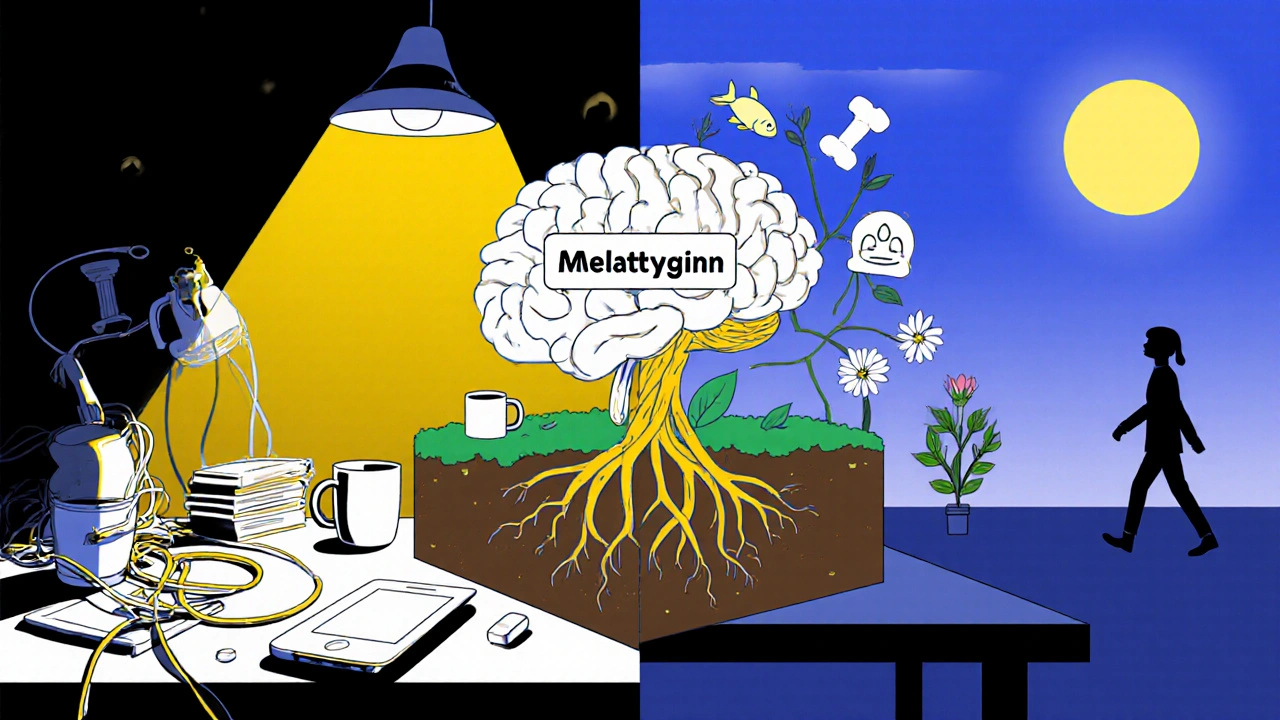
Other Ways to Protect Your Memory (That Don’t Involve Pills)
Melatonin can help-but it’s not the hero. Real memory protection comes from lifestyle:
- Movement: Walking 30 minutes a day increases blood flow to the hippocampus. One study found seniors who walked regularly had 2% larger hippocampi after a year-linked to better memory.
- Omega-3s: Fatty fish, flaxseeds, walnuts. DHA, a type of omega-3, is a major building block of brain cells. Low levels are tied to faster cognitive decline.
- Stress management: Chronic stress floods your brain with cortisol, which kills memory cells. Meditation, deep breathing, or even gardening can lower cortisol.
- Learning something new: Taking a class, learning a language, playing an instrument-these build new neural pathways. Your brain grows when challenged.
Melatonin might help you sleep so your brain can do its job. But it won’t replace exercise, good food, or mental stimulation.
Final Takeaway: Melatonin Isn’t a Memory Booster-It’s a Sleep Enabler
Melatonin doesn’t make you remember more. It helps your brain remember better-by letting you sleep well. If you’re struggling with sleep, especially as you age, or your schedule is all over the place, a low dose might help. But don’t expect magic. Don’t rely on it long-term. And don’t skip the basics: move your body, eat real food, manage stress, and protect your sleep like your brain depends on it-because it does.
Can melatonin improve memory in healthy young adults?
No. In healthy young adults who already sleep well, melatonin doesn’t improve memory. Studies show no significant difference in recall, learning, or focus when they take melatonin. The brain doesn’t need extra help-it’s already doing its job. Melatonin only helps when sleep is disrupted.
Is it safe to take melatonin every night?
Short-term use (a few weeks) is generally safe for most people. Long-term nightly use isn’t well studied. Some people develop dependency, where they feel they can’t sleep without it. It can also disrupt natural melatonin production over time. It’s best to use it only when needed-like after jet lag or a schedule change-and then stop.
What’s the right dose for memory support?
For memory support linked to better sleep, 0.5 mg to 3 mg is the typical range used in studies. Higher doses (5 mg or more) don’t work better and can cause next-day grogginess or headaches. Start with 0.5 mg. If you don’t notice a difference in sleep quality after a week, try 1 mg. More isn’t better.
Does melatonin help with Alzheimer’s or dementia?
Melatonin doesn’t stop or reverse Alzheimer’s or dementia. But in people with these conditions, it can help improve sleep patterns and reduce sundowning (increased confusion in the evening). Better sleep can make daily life easier and reduce caregiver stress. It’s supportive, not curative.
Can melatonin cause weight gain?
There’s no direct link between melatonin and weight gain. But poor sleep can lead to weight gain-because it messes with hunger hormones like ghrelin and leptin. If melatonin helps you sleep better, you might actually avoid weight gain. The supplement itself doesn’t cause it.
When should I take melatonin for the best memory results?
Take melatonin 30 to 60 minutes before your target bedtime. This gives your body time to absorb it and start lowering core body temperature-a key signal for sleep. Taking it too late (after midnight) can delay your internal clock, making it harder to wake up and reducing sleep quality-both of which hurt memory.
Are there natural ways to boost melatonin without supplements?
Yes. Reduce blue light exposure an hour before bed-use night mode on devices. Keep your bedroom dark and cool. Get sunlight in the morning-it helps your body know when to make melatonin at night. Eat foods with natural melatonin: tart cherries, walnuts, tomatoes, and oats. These won’t give you a big boost, but they support your body’s own rhythm.
If you’re worried about memory changes, don’t assume melatonin is the answer. Talk to a doctor. Memory issues can be caused by vitamin B12 deficiency, thyroid problems, depression, or sleep apnea-all treatable conditions. Melatonin might help you sleep better, but it’s not a substitute for real medical care.

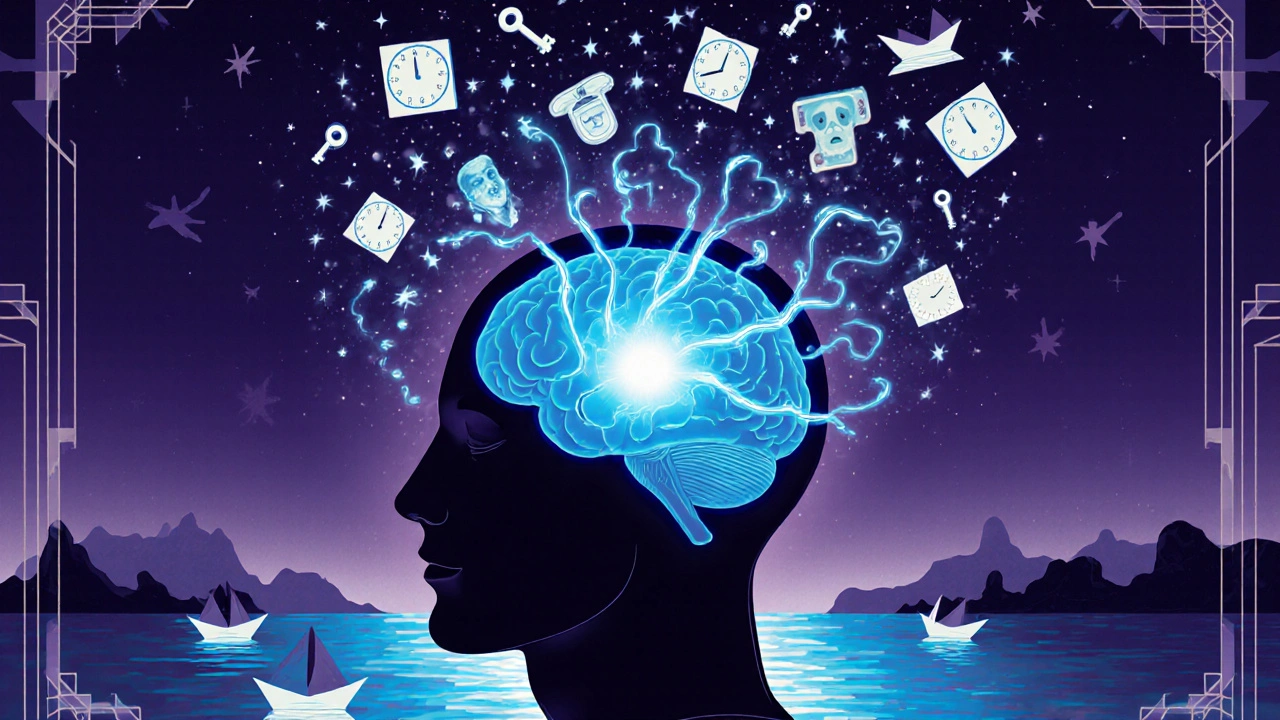

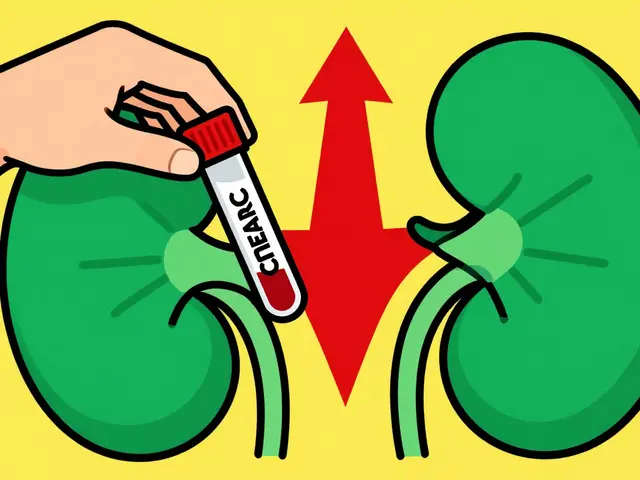

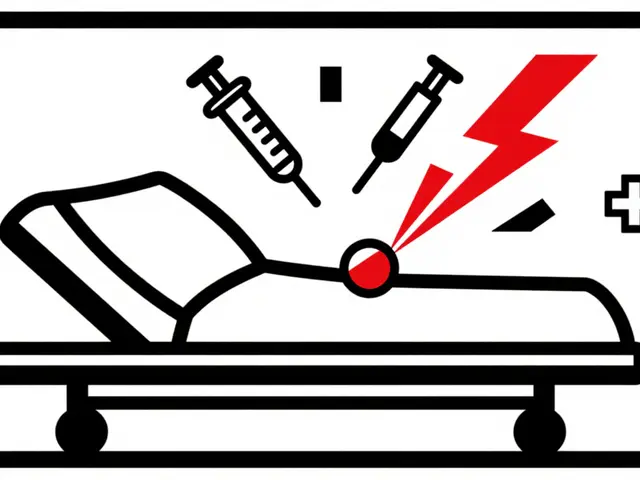
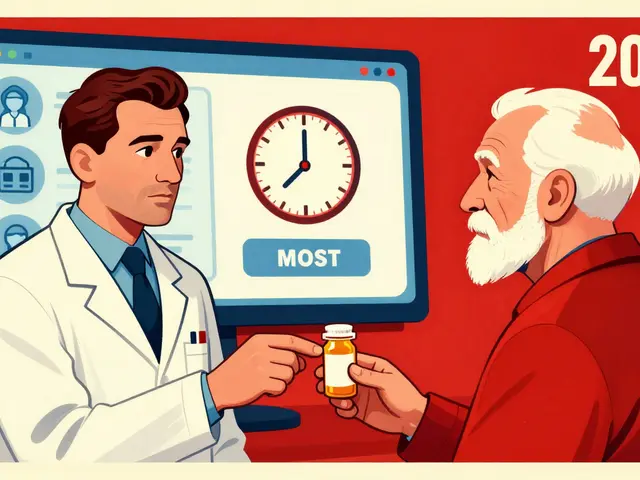
Lidia Hertel
November 1, 2025 AT 00:10Okay but like… I’ve been taking 0.5mg melatonin for 3 weeks now and my dreams are wilder than a Netflix thriller 😅 I used to forget where I put my keys every 5 minutes, now I’m remembering people’s birthdays like a human calendar. Not magic, just… my brain finally got a chance to clean house after years of 3am scrolling. Also, I started eating tart cherries before bed. No joke, they taste like liquid sunset. 🍒🌙
Chris Bock
November 1, 2025 AT 23:23Sleep is the original nootropic.
Alyson Knisel
November 2, 2025 AT 05:37i mean… if you dont sleep good nothin else matters right? like you can take all the omega 3s and walk 10k steps but if your brain is stuck in 3am doomscroll mode its just… noise. melatonin isnt the fix but its the door. and sometimes you just need someone to hold the door open for you
Lee Lach
November 3, 2025 AT 11:33Let me be clear: this is a pharmaceutical industry distraction tactic. Melatonin is a naturally occurring hormone. The fact that it’s sold as a supplement in 10mg doses with no regulation is a regulatory failure. The FDA should classify it as a drug. The real agenda? Keep you dependent on low-quality sleep aids while Big Pharma profits from antidepressants and sleep disorder meds. You’re being manipulated into believing a chemical band-aid fixes a systemic problem - poor sleep hygiene, screen overexposure, and corporate exploitation of circadian biology.
Tracy McKee
November 4, 2025 AT 04:37People take melatonin like its candy and then wonder why they feel like zombies the next day. You think your brain is a phone you can reboot with a button? Wake up. If you need a pill to sleep you’ve already lost. No one in the 1980s needed melatonin. We had rules. Bedtime. No screens. Quiet. Simple. Now everyone wants a shortcut and blames their brain.
Abigail M. Bautista
November 5, 2025 AT 03:24My cousin took it for a month and said it made her sleep worse. So maybe its just placebo. Or maybe your brain just gets confused. Either way dont trust it
Rohan Puri
November 6, 2025 AT 15:36why do americans always think a pill fixes everything. in india we just sleep when tired. no supplements. no apps. no 3am melatonin rituals. you people overthink sleep like its a math problem
Mandeep Singh
November 7, 2025 AT 11:05Western medicine is always looking for a quick fix. Our ancestors survived for thousands of years without melatonin supplements. We had discipline. We had rhythm. We had respect for the sun. Now you want to chemically hack your biology? This is cultural decay.
Chris Bellante
November 7, 2025 AT 21:31Let’s unpack this through a neuroendocrine lens: melatonin’s affinity for MT1/MT2 receptors in the hippocampal CA1 region modulates synaptic plasticity via cAMP/PKA pathways. But the real variable isn’t the dose-it’s the zeitgeber alignment. If your circadian phase is misaligned due to blue light exposure post-sunset, even 5mg won’t rescue memory consolidation. The supplement merely amplifies endogenous signaling-it doesn’t override environmental disruption. You’re not treating the disease-you’re masking the symptom with a chronobiological Band-Aid.
Nicole Manlapaz
November 8, 2025 AT 03:14Y’all are overcomplicating this. If you’re tired, go to bed. If you can’t sleep, try dim lights, no phone, and a cool room. Melatonin? Maybe. But don’t skip the basics. I used to be a 2am scroll addict. Now I read paper books. I sleep 8 hours. I remember names. I don’t need a pill. Just a little discipline. You got this 💪🌙
Frederick Staal
November 8, 2025 AT 04:30Everyone is so eager to believe in a silver bullet. But what if the real issue isn’t melatonin deficiency? What if it’s the crushing weight of late-stage capitalism? The 24/7 work culture? The constant anxiety? Melatonin is just the opiate of the sleep-deprived masses. They hand you a pill so you don’t ask why your life is designed to break you. You’re not broken-you’re exploited. And they’re selling you the chains as a cure.
erin orina
November 9, 2025 AT 14:59Just wanted to say thank you for writing this so clearly. I’m 58 and started taking 1mg melatonin after my husband passed. I was sleeping 3 hours a night. Now I sleep 6-7. I remember my grandkids’ names again. It’s not magic. It’s just… peace. And peace lets your brain heal. You’re not alone. 💛
Lisa Uhlyarik
November 10, 2025 AT 06:18So you’re saying if I’m 25 and sleep fine I shouldn’t take it? But what if I want to be a genius? What if I want to remember every word of every book I read? You’re gatekeeping cognitive enhancement like it’s a secret club. This is discrimination against ambitious people. Why should only old people get the edge?
Lidia Hertel
November 10, 2025 AT 13:25@Lisa Uhlyarik 😂 honey I tried 3mg to ‘become a genius’ and woke up feeling like I’d been hit by a truck made of fog. My brain didn’t upgrade-it just napped harder. I still can’t spell ‘supercalifragilisticexpialidocious’ and I’m okay with that. The goal isn’t to be a walking Wikipedia. It’s to remember where I left my socks. And that? That’s enough.